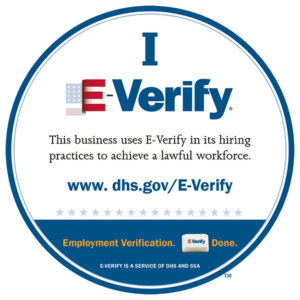Most Common Candidate Prospecting Mistakes to Avoid
Sitting back and waiting for applicants to come to you is one of the greatest errors you can make while recruiting. On your business website and common job boards, you can post open positions, but that does not always mean the right person would apply for the job.
You can aggressively look for great applicants if you are looking to make a slam dunk recruit. There are many individuals out there who are already working but willing to learn about new possibilities. As they’re usually named, many of these passive applicants are so qualified that they don’t need to pursue work boards and send off resumes. They’re used to being employed by businesses who are fascinated by their experience.
Searching in the wrong places for candidates
On LinkedIn, the obvious place to find passive Common Candidate is. To find people who work in your industry or have the skills you are searching for, you can use the search feature. But the problem with LinkedIn prospecting is that you have to contend with all the other businesses looking for similar Common Candidate .
There are also other choices for prospective applicants that might be ignored by the competition. Online professional groups, for instance, are fantastic places to find applicants for particular positions. For designers, Stack Overflow for tech talent, and Inbound.org for marketers, to name a few, you can check out Dribbble.
The downside of online professional groups, however, is that they can lack local applicants. Conferences or meet-up groups in your region are another great yet often missed place to source talent. You may send to these events a member of your recruitment team or the hiring managers and ask them to find passionate individuals to pitch the job to.
Using inaccurate messaging when contacting applicants
You need to make a favorable first impression until you find a great candidate. A customized message that describes the job, your company, and the benefits of becoming an employee should be developed. You should also include what the individual impresses you specifically so that they know how, if employed, they can add value to the company.
That implies that you should avoid sending generic messages or using language or phrases that do not resonate with an applicant. It’s not a bad idea to have your outreach message checked by the hiring manager to ensure that you speak the professional language of the applicant, especially for technical roles or positions that your recruitment team may not be familiar with.
In your initial message to them, you might may want to avoid asking the candidate to complete your online application. You should presume they’re busy and used to receiving recruiters’ messages. The best way is always to invite them to talk on the phone so that the opportunity can be pitched further. If by the end of the conversation they sound interested, then ask them to apply formally.
Don’t forget to follow up with candidates
It can be a lengthy effort to persuade an outstanding candidate to enter your company. You might interact with someone who is interested but not ready to suddenly change jobs. In their current position, maybe they’re finishing a project or have a vacation on the horizon.
You can keep checking in with them every few months if you can wait to fill the role or have another position for which the applicant might be suitable. Remind them that you’re always really concerned and ask them if they’ve changed their conditions. Over time, you can start developing a bond with them and they will grow to feel like they will be valued working for your company.
Do not try to pester anyone on the flip side who has told you they are not interested or who has not replied to your first few messages. If the individual has a change of heart, they may consider applying to a business that has already reached out to them, but not if you first offend them.
Providing a terrible interview experience for candidates
Finding a great Common Candidate, convincing them to come in for an interview, and then giving them a bad experience is one of the worst things you can do. As you would any other nominee, you are certainly allowed to interview them, but you should already be acquainted with their history from previous conversations. Stop asking them questions that they have already answered or fundamental questions regarding their ability to do the job.
Instead, try to have a discussion about their interest in the job and what they would do if they were hired. As you did in your outreach letter, you can relate to what initially impressed you about them, and find out how they can apply those abilities or initiatives to your company.
Although interview experience is significant, the Common Candidate should not be coddled and treated as a shoo-in for the job. The interview is your chance to prove that they are as outstanding as you thought or even discover that, after all, they might not be the right person for the job.
Conclusion
Although it is a large recruiting error not to prospect at all, the blunders mentioned in this blog post will render it an inefficient activity. Put in the time and the right effort and you will possibly find talented individuals who otherwise would not contribute to the organization.














